Treatment
Towards more accurate diagnoses
A proper diagnosis is essential. In case of suspicious or positive screening symptoms, examinations at different scales (from the cell body) is aimed at establishing a precise diagnosis that result in proper treatment.
This important step allows us to draw a first picture of a possible tumor : Is there one? What type is it? ?Benign or malignant (presence of metastases) ? How aggressive is it? ...
Towards more targeted therapies
After diagnosis, a personalized care plan is offered to the patient. Since the 90s, the goal of researchers and physicians is to find more targeted treatments. Healthy tissues are better spared, reducing side effects and heavy treatments. These new treatments concentrate therapeutic agents against tumors (targeting) and thus improve efficiency.
An example of targeted therapy: monoclonal antibodies
Monoclonal antibodies act on cancer cells to inhibit tumor growth. They allow:
- Either destroy directly the cancer cell,
- Or deprive it of nutrients : "anti-angiogenic effect", which prevents production of blood vessels in tumors.
The researchers' goal is to develop any type of targeted therapy (antibodies, chemotherapy, inhibitors, ...) to ensure specificity and efficiency! These findings require a better understanding of the intimate mechanisms of tumor progression.
Stop the pain
Largely overlooked in the past, pain is now a priority, even if progress is still needed to ensure the patient a better quality of life during and after treatment. Some treatments, called palliative show no therapeutic effect, but help to improve as much as possible the general condition of patients.
Healthcare networks: do not stay alone with the disease
The latest cancer plan places the patient at the heart of a device of actors, themselves organized into a network:
- A network proximity healthcare in each department
- Who: practitioners, specialists, paramedical staff, associations, multidisciplinary healthcare support team.
- Objectives: To give appropriate, progressive and respectful information to the patient, patient and family support on all aspects (medical, psychological, social, economic).
- ONCOMIP: Network Regional Cancer in Midi-Pyrénées
- Objectives: To coordinate all health actors in Midi-Pyrénées to ensure the quality and equity of healthcare (network of professional health care, professionals ...)
- Means: provision of a framework, organization and tools to harmonize and improve professional practices.
The research must goes on!
Researchers are currently working on nanoscale techniques that could be applied to cancer research. These promising research whose applications will emerge in several years, take place in analytical laboratories without manipulation of living. Examples of future diagnostics (puces 1)
- A lab on a chip!
Principle: Toulouse researchers are working on an ultra-sensitive nano-device integrated on a chip. This system can detect very small amounts of cancer markers in a drop of blood, the equivalent of a drop of milk in an Olympic pool!
Interest: to help clinicians diagnose both earlier and more accurately
Challenge: to sort through the many detected tumor markers (quantity and types) - Drug nano-carriers!
Principle: Enclose a drug in capsules of a few tens of nanometers, which are programmed to penetrate and open in cancer cells.
Interests: targeted medication without dispersion in the patient's body
Challenge: Mastering nanoscale and deliver the drug to interact with cancer cells only
